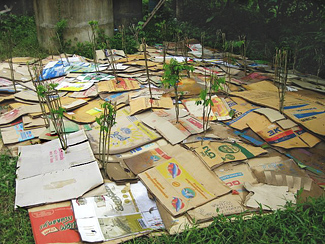
Actionist – One who favors constructive transformative action towards a vision of how things could be rather than an activist, who may primarily protest against things as they are now.
All-scale – From micro to macro (for example from sprout garden to region, in permaculture terms), from individual to societal.
Amates – This term refers to a Gaia University community internal reward system, similar in concept to air-miles and supermarket loyalty systems in that it enables all associates and advisors to accumulate points for doing good business with Gaia University. These points can be redeemed by applying them to services provided by members of the community.
The amates name comes from the spectacular, cliff-hugging, wild fig trees that grow in the mountains surrounding Huehuecoyotl ecovillage, which has served as base for Gaia University. There is an especially wonderful specimen there – with many ceremonies and gatherings happening beneath its spreading branches. Indeed, the Gaia University community team first incubated the amates reward system in its shade.
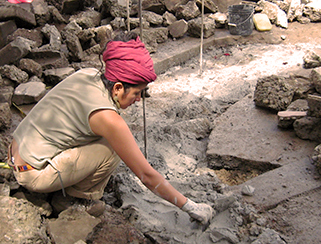 The amates systems runs on CES software, which will allow us to use points across a much wider, international community once we have generated sufficient traffic. See this website for more information, and note that there are 166 other CES’s using this platform world-wide, 31 in the USA.
The amates systems runs on CES software, which will allow us to use points across a much wider, international community once we have generated sufficient traffic. See this website for more information, and note that there are 166 other CES’s using this platform world-wide, 31 in the USA.
Bill Mollison – The Tasmanian co-founder (along with Australian David Holmgren) of the permaculture movement. He is the tireless, tenacious and heroic front man for a sane society based on ecological principles and author of, amongst other influential books, the seminal classic Permaculture – A Designers’ Manual.
Blended Learning – The increasingly common practice of using a variety of learning and unlearning environments in a designed mix. The environments used by Gaia University include online modules (courses, one-on-one calls, webinars, conference calls, eLearning, ePortfolio and project management websites), and hands-on project work chosen by the associate. These are complimented by occasional Gaia U Gaher-Ins generally piggy-backed onto other regional or global events. Other options are open too. You can read more about bended learning here.
 Phases – Gaia U’s equivalent of semesters or quarters. They are minimally either 12 or 24 months long, but may be lengthed by very flexible program management options.
Phases – Gaia U’s equivalent of semesters or quarters. They are minimally either 12 or 24 months long, but may be lengthed by very flexible program management options.
Capstone Phase – Imagine a beautiful earthen (cob) wall, snaking across the land on contour, finished on the top for weather proofing and structural purpose, with an overhanging stone cap (capstone). Now think of the last year of a degree program as having something of the same qualities – spanning sensitively across a whole portfolio of experience and learning that went before, neatly tying it all together and conferring sufficient finish to indicate that the construction is complete, inspected for quality and fit for purpose.
An (almost) unique feature of Gaia University is that experienced people with good documentation of past and current learning and project work can enter a program close to the capstone phase even if they have not completed the years of academic study necessary for a conventional degree. Applicants seeking these shortened degree routes make this request either when filling in an application form and provide evidence of prior learning and experience or after they have submitted a certain number of Output Packets.
Career Year – An optional year inserted into a bachelor’s program (making 4 years in all) that is designed to enable an associate to ground their learning and unlearning through additional practice. An internship/worktrade series with established, leading-edge projects is a typical route for a career year, which is designed by an associate with support from their main advisor. If an associate is significantly behind in Output Packet production, the career year may become a requirement to complete their program.
Chaordic – A term introduced by Dee Hock to describe a practice and philosophy of organizational design that carefully combines the innovative fluidity and change potential of chaos with the stability of ordered systems. Chaordic organizations are seeking to avoid the trap of stultifying bureaucracy and, instead, invoke a ‘can do’ spirit amongst their community.
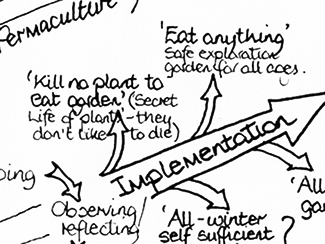 Competence & Attention – The Gaia University model proposes that both competence and attention are required for success in action learning. That is, a person with competence is unlikely to be effective if they are not paying attention and, on the other hand, a person with a lot of attention but who does not develop competence is also unlikely to be effective.
Competence & Attention – The Gaia University model proposes that both competence and attention are required for success in action learning. That is, a person with competence is unlikely to be effective if they are not paying attention and, on the other hand, a person with a lot of attention but who does not develop competence is also unlikely to be effective.
Complementary Currencies – Systems of trading and exchange that feature interest free tokens whose issuance is often determined by mutual agreement amongst the members of the system. For further information, read more.
Discovery Learning – Jerome Bruner asserts that, “Practice in discovering for oneself teaches one to acquire information in a way that makes that information more readily viable in problem solving.” See here for the full context.
In conventional (progressive) educational settings, a teacher working with discovery learning will provide a student with staged opportunities to arrive at learning goals through discovery. In Gaia University, associates are invited to design experiences and projects that help them meet their chosen learning/unlearning goals.
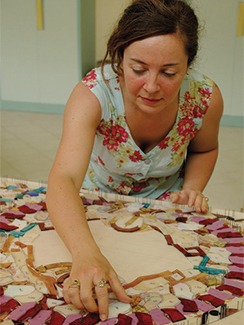 Discovery learning can be frustrating and difficult, as an associate may find themselves confused and isolated. Gaia University seeks to mitigate these issues by providing clear routes through which an associate can access guidance and advising. However, as we are seeking to generate strong capacities of self-directedness in ourselves and our associates, we avoid ‘spoon-feeding’ advice and guidance. Instead, we work towards discharging any ‘bad’ feelings that come up around frustration and difficulty and, consequently, become robust, connected learners in complex, messy, real-life situations.
Discovery learning can be frustrating and difficult, as an associate may find themselves confused and isolated. Gaia University seeks to mitigate these issues by providing clear routes through which an associate can access guidance and advising. However, as we are seeking to generate strong capacities of self-directedness in ourselves and our associates, we avoid ‘spoon-feeding’ advice and guidance. Instead, we work towards discharging any ‘bad’ feelings that come up around frustration and difficulty and, consequently, become robust, connected learners in complex, messy, real-life situations.
Ecosocial – A portmanteau word coined by Gaia University to emphasize the essential integration of ecological awareness with social design. Social refers to all aspects of human societies including economy, community, family and so on.
Ecovillage and Ecosettlement – Both of these terms refer to human settlements specifically engineered for good ecological performance and a low carbon footprint. Ecovillages and ecosettlements are often new build sites, although these days increased attention is being paid to converting existing built infrastructure, a process often referred to as ‘retro-fitting’. Read more about organizations focused on promoting ecovillages here.
Emergent Curricula – In conventional (progressive) education, emergent curricula refers to a flexible and dynamic process in which a teacher continually modifies and develops a curriculum based on the expressed interests of their students. In an action learning context with the spaciousness of the Gaia University approach, the freedom moves a stage further, as the curriculum is no longer the province of the teacher.
 Full-spectrum Guilds – Working teams that assemble specialized generalists in order to field a wider-than-solo-artist range of integrated skills and competencies.
Full-spectrum Guilds – Working teams that assemble specialized generalists in order to field a wider-than-solo-artist range of integrated skills and competencies.
Fund-earning – A business model in which an enterprise earns revenue by delivering goods and services, and retains some portion of the surpluses generated by trading in order to further develop the project. This is different from a typical non-profit style of operation which raises funds by making applications to donors, although it is common for non-profits to do some level of fund-earning as a complement to fund-raising.
Gaia University works within a fund-earning model in order to remain independent of agendas, both hidden and overt, that often underlie the funding decisions of grant-giving foundations and bodies.
Great Turning – From the title of David Korten’s book, The Great Turning, meaning the essential adventure of our time: the shift from the industrial growth society to a life-sustaining civilization.
Holopticism – A term developed by the emerging collective intelligence community to describe an unusual quality of interpersonal communication in which persons in a group have a strong sense of each others’ place and/or state of being and know just how to act in order to maximize synergy and connectedness in the moment. Improvising musicians and dancers report instances of high holopticism as do team sports players and work groups. One possibility is that the tiny bits of information flying about the ether courtesy of, say, Twitter, may enable larger, more geographically dispersed groups to develop qualities of holopticism more typically seen in intimate face-to-face situations.
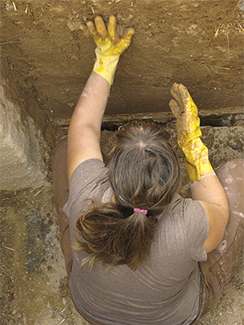 Intrapreneur – A person or persons who actively reconfigure some parts of the resources of an organization or community to which they have access in order to generate new trading possibilities.
Intrapreneur – A person or persons who actively reconfigure some parts of the resources of an organization or community to which they have access in order to generate new trading possibilities.
Just-in-time Learning – A concept derived from modern supply chain strategies that seek to keep inventory (stock in process, in transit and on shelves) at an absolute minimum, as big inventories tie up money better used elsewhere. Likewise we understand that learning which is immediately relevant to the learner is far more powerful than inventory put on the shelf by others.
Leaderful – A new word describing an organizational culture predicated on the notion that there is no limit to the amount of leadership required to transition human cultures to ecosocial balance. It contradicts flat earth thinking, in which leadership is made illegal lest it create stubborn pockets of rank, power and privilege, and instead opens the way for all people to reach for their potential for taking leadership in the great turning. Deconstruction of the patrix is essential.
Liberated Intelligences – Intelligences that have escaped the confines of hidden oppression, the effects of the patrix. They can think ‘outside of the box’.
Liberating Structure – An organizational model that provides people with a held space sufficient for coherence and connection, but which does not interfere with creativity and emerging dynamics. Read more here. We extend the range of the term at Gaia University and apply it to our learning designs. Liberating structures offer enough of a framework to clearly define a learning pathway without constraining the unique curriculum which is bound to emerge for each associate.
 Multiple Intelligences – This term refers to the theory developed by Howard Gardner in which he identifies nine modalities of intelligence in an attempt to have us break out of narrow interpretations of what intelligence might be. The nine modalities of intelligence are: spatial, linguistic, logical-mathematical, bodily-kinesthetic, musical, interpersonal, intrapersonal, naturalistic and existential.
Multiple Intelligences – This term refers to the theory developed by Howard Gardner in which he identifies nine modalities of intelligence in an attempt to have us break out of narrow interpretations of what intelligence might be. The nine modalities of intelligence are: spatial, linguistic, logical-mathematical, bodily-kinesthetic, musical, interpersonal, intrapersonal, naturalistic and existential.
Open Source – This is a term borrowed from the open source software development field. ‘Open Source’ is an extraordinary phenomena in which thousands of people contribute to the development of software, often as volunteers, so that the code for the software can be distributed to users, frequently for free. This enables the user to access functional software for no cost and also allows them to modify and develop the software themselves (they may also offer these modifications back to the community).
Open Source is a powerful contradiction to the more common proprietary meme that keeps the ‘how it works’ details secret and is generally opaque with regard to its business model. The Gaia University online ecology is all based on open source software, and Gaia University itself is working to embrace the open source ethic in its operations.
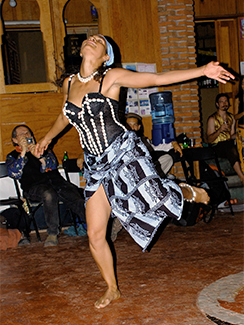 Open Professionals – Arising from action research work in the 1970’s, open professionalism intends to replace the exclusive, class-based professionalism of yesteryear with a professionalism characterized by open, peer-reviewed standards of competence and attention. Open professionals consciously mentor succeeding generations of practitioners to acquire and build on current skill-flexes, and seek to eliminate the patrix from their praxis by organizing in cooperative guilds that ensure mutually supportive, affirmative working environments (see Peter Reason, William Torbert).
Open Professionals – Arising from action research work in the 1970’s, open professionalism intends to replace the exclusive, class-based professionalism of yesteryear with a professionalism characterized by open, peer-reviewed standards of competence and attention. Open professionals consciously mentor succeeding generations of practitioners to acquire and build on current skill-flexes, and seek to eliminate the patrix from their praxis by organizing in cooperative guilds that ensure mutually supportive, affirmative working environments (see Peter Reason, William Torbert).
Output Outcome – When we create an output packet (or ‘output’) as part of our trail of evidence in our portfolio, we are reporting on projects, on our process and on any outcomes (results) that might have occurred along the way. So, an output packet is a collection of reports that highlight learnings and unlearnings (outcomes), achievements (outcomes), conclusions (outcomes), literature reviews (outcomes) and so on. Think of output packets as maps of outcomes along with commentaries. Sample some examples here.
Permaculture – A design system based in ecological knowledge and focused on the re-configuration of human settlements towards ecological regeneration. Explore more extensive literature about permaculture here.
Peter Reason – Peter Reason is an action research and action learning pioneer from the University of Bath, UK. In the 1970’s he tutored Andrew Langford (joint founder, Gaia University). He is also a champion of ‘open professionalism’ as the director of the Center for Action Research in Professional Practice, a colleague of William Torbert and a committed actionist for Gaia. See here for a list of Reason’s published papers.
 Praxis – Paulo Freire defines praxis in Pedagogy of the Oppressed as, “reflection and action upon the world in order to transform it.” Through praxis, oppressed people can acquire a critical awareness of their own condition and, with their allies, struggle for liberation.
Praxis – Paulo Freire defines praxis in Pedagogy of the Oppressed as, “reflection and action upon the world in order to transform it.” Through praxis, oppressed people can acquire a critical awareness of their own condition and, with their allies, struggle for liberation.
Skill-flex – A replacement for the more common term, ‘skill-set’, that brings attention to the idea that skill acquisition is, in an ecosocial culture, dynamic, flexible and never ending.
Specialized Generalists – A category of thoughtful practitioners who specialize in developing a broad, systems-based (meta) view of the world.
Stack Functions – A permaculture design principle with a similar meaning to the common hunters’ admonition ‘to kill two birds with one stone’. Said differently: to devise strategies that achieve results in as many spheres as possible at once. Often used in conjunction with ‘minimum effort for maximum effect’ (another permaculture design principle) for greatest efficiency.
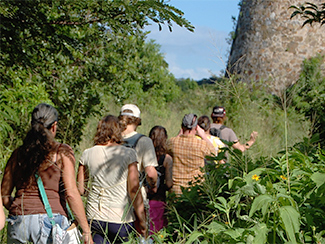 Strategic/Operational – In the context of Gaia University, ‘operational’ means to be working at the level of operating within an existing system, albeit with flair and creativity. ‘Strategic’ means the creation of new systems that integrate otherwise disassociated elements to create a greater whole.
Strategic/Operational – In the context of Gaia University, ‘operational’ means to be working at the level of operating within an existing system, albeit with flair and creativity. ‘Strategic’ means the creation of new systems that integrate otherwise disassociated elements to create a greater whole.
Subjugated Knowledge – A term coined by Michel Foucault (see here, for more information) to describe knowledge (and ways of knowing) that are left out, opposed or ignored by mainstreams of the dominant culture. Examples may be knowledge of the natural management of human fertility, aboriginal water management strategies in arid landscapes, lower middle-class understanding of the world, men’s oppression, etc.
A function of Gaia University is to unearth the subjugated knowledges belonging to participants, as well as to contribute to the overall project of shining light on ‘other ways of knowing’.
Supported/Synergistic – Implies that in order to find adequate and better economic, technical, and social support for one’s project work, one needs: platforms of capacity, methods of organization, and a thriving economy. Project selection and design take place through a collaborative process that assists each designer in knowing how their work serves to augment and resolve the field.
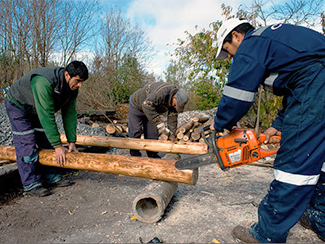 Systems Thinking – A concept derived from General Systems Theory (GST), which was introduced to the world through the work of biologist Ludwig von Bertalanffy, who proposed alternatives to conventional models of organization. GST defined new foundations and developments as a generalized theory of systems with applications to numerous areas of study, emphasizing holism over reductionism, organism over mechanism.
Systems Thinking – A concept derived from General Systems Theory (GST), which was introduced to the world through the work of biologist Ludwig von Bertalanffy, who proposed alternatives to conventional models of organization. GST defined new foundations and developments as a generalized theory of systems with applications to numerous areas of study, emphasizing holism over reductionism, organism over mechanism.
The publication of Bertalanffy’s book, General Systems Theory in 1968, caused ripples of delight and anguish throughout the Academy in more or less equal measures, as the implication of his research is that subjects previously developed and studied in water-tight silos were in fact connected, and that specialists in one department might, if they were prepared to explore and articulate the systems inherent in their own field, discover that these systems could be clearly understood by systems-savvy specialists outside of their specialty.
It was from this understanding of systems-level commonality that the somewhat shocking notion of interdisciplinary studies arose, permaculture being one.
 Transition – A common yet frequently unacknowledged event in the lives of many people. Indeed we might describe the language of transition and the knowing about how to do transition as a subjugated knowledge. It is generally in the interests of the dominant culture that a person or a community not make significant shifts away from standard patterns. Transition occurs when a person or community,experiences the normal way of thinking about and doing things as being no longer adequate to the situation.
Transition – A common yet frequently unacknowledged event in the lives of many people. Indeed we might describe the language of transition and the knowing about how to do transition as a subjugated knowledge. It is generally in the interests of the dominant culture that a person or a community not make significant shifts away from standard patterns. Transition occurs when a person or community,experiences the normal way of thinking about and doing things as being no longer adequate to the situation.
Bringing transition to awareness has many benefits, not the least of which is that patters of transition can be observed (e.g. begins with an ending and has a chaotic middle which continues until a new beginning emerges) and that transitioneers (people and communities in transition) can devise active means of encouraging and supporting each other in meaningful journeys towards more ecosocial societies.
Gaia University provides a structure and support worknet for transitioneers who may use their transition project as a core element of their program. Read more here.
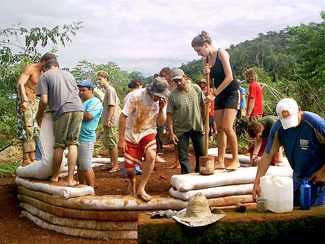 Un-institution – From the example of ‘unconference’, a post-Open Space Technology style of participatory gathering designed with just enough structure to liberate the creativity of participants. An unconference typically has a minimum number of lecturers (if any) and works without a fixed agenda, although it is likely to have some clear goals in place. Read more here.
Un-institution – From the example of ‘unconference’, a post-Open Space Technology style of participatory gathering designed with just enough structure to liberate the creativity of participants. An unconference typically has a minimum number of lecturers (if any) and works without a fixed agenda, although it is likely to have some clear goals in place. Read more here.
An un-institution is conceptually similar, having enough structure to engage collaboration and creativity, enough longevity to enable the development of essential infrastructure and yet without the tendency to accumulate the aristocratic and bureaucratic character of conventional institutions (notwithstanding that one person’s agility is another’s rigidity). Read more here.
William Torbert – William Torbert is a Professor Emeritus of Leadership at the Carroll School of Management at Boston College, USA, a colleague of Professor Peter Reason in the field of action research, and developer of a much used leadership development framework, eScholarship, (sometimes compared to Spiral Dynamics) that includes ‘magicians’ and ‘ironists’. Read more here.
 Worknet – A term coined by Bill Mollison in the 1970’s to contradict the contemporary and somewhat sycophantic new-age tendency to go about embedding oneself in guru and gliterati studded networks without expecting these to do anything useful towards ecosocial regeneration. Instead, a worknet is a loose set of supportive connections gathered in order to build collaborations with high capabilities for constructive action. A relevant concept now in an age of online social networks that surely soak up unimaginable amounts of human time and effort without necessarily producing practical outcomes. Maybe there is some increased holopticism out there, maybe not.
Worknet – A term coined by Bill Mollison in the 1970’s to contradict the contemporary and somewhat sycophantic new-age tendency to go about embedding oneself in guru and gliterati studded networks without expecting these to do anything useful towards ecosocial regeneration. Instead, a worknet is a loose set of supportive connections gathered in order to build collaborations with high capabilities for constructive action. A relevant concept now in an age of online social networks that surely soak up unimaginable amounts of human time and effort without necessarily producing practical outcomes. Maybe there is some increased holopticism out there, maybe not.